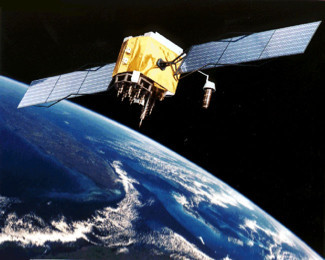Climate Change Weekly #79
Global temperatures are warming much more slowly than claimed by British and U.S. government agencies that produce temperature data reports, according to data compiled by the Japanese Meteorological Agency.
According to meteorologist Anthony Watts, Japan is reporting that global temperatures during the past decade are approximately 0.25 degrees Celsius cooler than reported by the U.K. Met Office, the NASA Goddard Institute, and the NOAA National Climatic Data Center. The 0.25 degree difference is staggering considering the Earth warmed merely 0.6 degrees Celsius during the entirety of the twentieth century.
Japanese scientists appear to be giving more weight to real-world temperature data than the U.K. and U.S. government agencies do, Watts reports. NASA, NOAA, and the Met Office make several adjustments to real-world temperature data that have the effect of inflating recent temperature readings and reducing the temperatures that were reported several decades ago. By contrast, the Japanese scientists give more weight to real-world data than to government agency adjustments that always seem to add more warming than appears in the raw temperature data.
The Japanese data add weight to global temperature readings compiled by NASA satellite instruments. NASA satellite instruments show substantially less recent warming than is claimed by global warming alarmists and government agencies that adjust the real-world temperature readings. Because the NASA satellite instruments uniformly measure global temperatures, the temperature readings do not require any adjustments to weed out asserted temperature anomalies.
SOURCE: Watts Up With That?
IN THIS ISSUE
Longest period without tornado death finally ends … Global fire activity decreasing as temperatures warm … IPCC overstates potential glacial melt … Activist group caught lying about Alaska temperatures … Irrigation is causing more severe storms
LONGEST PERIOD WITHOUT TORNADO DEATH FINALLY ENDS
The longest recorded period in U.S. history without a tornado death finally came to an end this week when a tornado death was reported in Georgia. CNN quickly published an article claiming the meteorological circumstances that led to the Georgia tornado “might be linked to climate change.”
SOURCES: Weather Underground and CNN
GLOBAL FIRE ACTIVITY DECREASING AS TEMPERATURES WARM
Two new studies in peer-reviewed science journals report global fire activity is decreasing as global temperatures warm. The first paper found a decline in global fires during the twentieth century compared to prior, cooler centuries. The second paper found the global number of fires declined 15 percent since 1950.
SOURCE: The Hockey Schtick
IPCC OVERSTATES POTENTIAL GLACIAL MELT
The ice volume of global glaciers is 43 percent less than assumed by the United Nations Intergovernmental Panel on Climate Change, concludes a new study published in the peer-reviewed science journal The Cryosphere. The updated glacier findings show IPCC is likely overstating potential sea level rise even if its dubious temperature projections ever occur in the real world.
SOURCE: The Hockey Schtick
ACTIVIST GROUP CAUGHT LYING ABOUT ALASKA TEMPERATURES
The National Wildlife Federation released a report claiming animals are struggling to keep up with global warming, particularly in Alaska. Recent warming in Alaska is “unprecedented,” NWF claims, and “Alaska has warmed about twice as much as the continental United States and warming is severely altering the Arctic landscape. …” By contrast, the Alaska Dispatch reports Alaska cooled by 2.4 degrees Fahrenheit since the year 2000, which is causing death and disruption for the state’s wildlife.
SOURCE: National Wildlife Federation and Alaska Dispatch
IRRIGATION IS CAUSING MORE SEVERE STORMS
Irrigation is causing an increase in atmospheric moisture that in turn is causing more intense storms in the western United States, according to a newly published study by scientists at the University of California at Irvine. The irrigation-enhanced storms also cause enhanced stream flows after storm events, the scientists report. The study contradicts alarmist assertions that global warming is causing an increase in extreme precipitation events in the western United States.
SOURCE: Watts Up With That?





